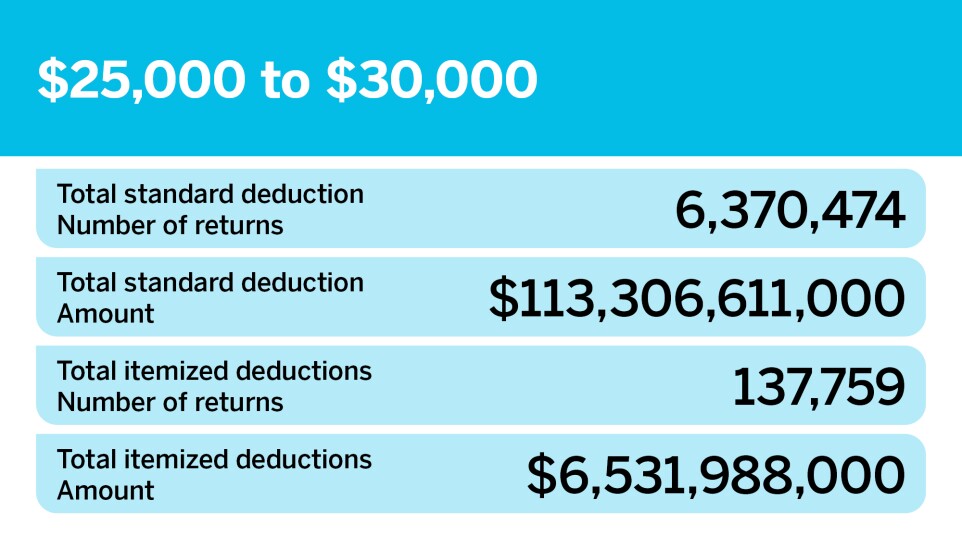How to maximize your tax benefits with the FEIE Standard Deduction
Wiki Article
The Foreign Earned Earnings Exclusion Explained: An Overview to Enhancing Your Common Reduction
The Foreign Earned Income Exemption (FEIE) is an important tax provision for U.S. citizens and resident aliens living abroad. It enables qualified migrants to exclude a considerable portion of their foreign-earned revenue from federal tax obligations. Understanding the subtleties of FEIE can cause substantial tax savings. Several individuals forget essential information that can affect their qualification and benefits. Checking out these facets may reveal possibilities for boosted tax obligation results.Understanding the Foreign Earned Revenue Exclusion
Lots of migrants look for possibilities abroad, understanding the Foreign Earned Income Exemption (FEIE) is vital for handling their tax obligation commitments. This stipulation enables united state residents and resident aliens living overseas to leave out a particular amount of their gained income from federal tax. The FEIE was developed to reduce the tax problem on people that live outside the USA, recognizing the unique monetary obstacles they may deal with.
Qualification Demands for FEIE

How to Assert the FEIE
To effectively assert the Foreign Earned Revenue Exemption (FEIE), taxpayers need to first validate their qualification based upon particular standards - FEIE Standard Deduction. The procedure involves numerous steps, consisting of filing the appropriate kinds and offering required documentation. Recognizing these demands and procedures is vital for optimizing tax advantages while living abroadEligibility Needs
Eligibility for the Foreign Earned Earnings Exemption (FEIE) depends upon meeting details criteria established by the IRS. To certify, people must be U.S. people or resident aliens who make revenue while functioning abroad. They need to develop an international tax home, which implies their major area of business is outside the United States. Additionally, applicants have to meet either the Authentic House Test or the Physical Existence Examination. The Bona Fide Home Examination requires that a taxpayer resides in an international nation for an entire tax obligation year, while the Physical Visibility Test demands investing at least 330 full days in a foreign country during a 12-month period. Satisfying these demands is essential for asserting the FEIE.Declaring Process Actions
Just how can one efficiently browse the process of asserting the Foreign Earned Revenue Exclusion (FEIE)? First, individuals need to identify their qualification based upon the physical presence test or the authentic house examination. When verified, they must finish internal revenue service Kind 2555, which information international revenue and residency. This kind has to be affixed to their yearly tax obligation return, typically Form 1040. It is important to precisely report all foreign made revenue and warranty conformity with the internal revenue service standards. Furthermore, taxpayers ought to maintain correct documents, such as foreign tax obligation returns and evidence of residency. By complying with these steps, individuals can efficiently declare the FEIE and potentially reduce their gross income significantly, enhancing their overall economic setting.Calculating Your International Earned Earnings Exemption
While many migrants seek to maximize their economic benefits abroad, recognizing the computation of the Foreign Earned Income Exemption is essential for accurate tax obligation reporting. The Foreign Earned Revenue Exemption allows certifying individuals to leave out a specific amount of their foreign incomes from U.S. taxation, which is readjusted yearly for rising cost of living. More Bonuses To determine this exemption, expatriates need to determine their complete foreign made income, which normally consists of salaries, wages, and professional costs earned while staying in an international country.Next off, they should finish IRS Kind 2555, offering information regarding their international residency and work status. FEIE Standard Deduction. It is necessary to satisfy either the authentic home examination or the physical existence test to get approved for the exclusion. When these variables are established, the maximum permitted exemption amount is applied, lowering the individual's taxable earnings considerably. Accurate computations can bring about substantial tax financial savings for migrants living and working abroad
her latest blog
The Impact of FEIE on Various Other Tax Obligation Benefits
The Foreign Earned Earnings Exclusion (FEIE) can affect an individual's eligibility for sure tax obligation advantages, including the conventional reduction. By leaving out foreign made earnings, taxpayers might locate their modified gross earnings affected, which consequently can affect their certification for numerous tax credit histories. Comprehending these communications is crucial for maximizing tax obligation results while living abroad.Communication With Requirement Reduction
When individuals get the Foreign Earned Earnings Exclusion (FEIE), their eligibility for the basic deduction may be influenced, possibly modifying their total tax obligation obligation. The FEIE enables taxpayers to exclude a certain amount of earned earnings from U.S - FEIE Standard Deduction. taxation, which can lead to a lowered gross income. As an outcome, if the left out revenue exceeds the basic deduction, it can lessen the advantage of asserting that reduction. In addition, taxpayers that use the FEIE may locate that their ability to itemize reductions is additionally affected, as certain expenditures might be impacted by the exemption. Recognizing this interaction is important for expatriates to optimize their tax benefits while making sure compliance with united state tax regulationsQualification for Tax Obligation Credit Scores
Steering with the intricacies of tax obligation debts can be testing for expatriates, specifically considering that the Foreign Earned Income Exemption (FEIE) can considerably affect qualification for these benefits. The FEIE enables eligible people to exclude a substantial portion of their international earnings from united state taxation, however this exemption can likewise influence access to numerous tax credits. For example, taxpayers that use the FEIE might find themselves disqualified for credit scores like the Earned Revenue Tax Debt (EITC), as these credit reports generally need taxed income. Furthermore, the exclusion may limit the capacity to declare specific deductions or credit ratings connected with dependents. Therefore, comprehending the interaction in between the FEIE and readily available tax obligation credit reports is essential for migrants intending to maximize their tax obligation circumstance.Common Blunders to Avoid When Declaring FEIE
Commonly, expatriates experience several risks while claiming the Foreign Earned Earnings Exemption (FEIE), which can bring about expensive mistakes or missed out on chances. One constant blunder is stopping working to fulfill the physical presence or bona fide home examination, which is vital for qualification. In addition, expatriates typically forget the requirement to file Form 2555 appropriately, causing inaccurate or incomplete submissions.An additional common mistake entails inaccurately determining international gained income, as numerous do not represent all pertinent income resources. Some expatriates incorrectly presume they can omit all their income, unaware of the restrictions on the exemption amount. Moreover, overlooking to keep correct documents, such as traveling dates and residency standing, can threaten a case. Misunderstanding the implications of the FEIE on various other tax obligation credit scores might lead to unintended tax liabilities. Awareness of these challenges can promote a smoother asserting process and maximize prospective benefits.
Resources for Expats Navigating U.S. Taxes
why not try here Steering united state tax obligations can be testing for migrants, specifically after encountering challenges in declaring the Foreign Earned Income Exclusion (FEIE) To assist navigate these intricacies, a range of resources are offered. The IRS site provides considerable info on tax obligation faqs, laws, and forms specifically customized for migrants. In addition, organizations like the American Citizens Abroad (ACA) and the Expat Tax obligation Professionals deal assistance and assistance to assure conformity with tax obligation regulations.On the internet discussion forums and neighborhoods, such as the Deportee Online forum, enable migrants to share experiences and insights, promoting an encouraging environment for those facing similar obstacles. In addition, tax prep work software, like copyright and H&R Block, commonly consists of functions made for expats, making the filing process extra user-friendly. Involving with these sources can encourage migrants to better understand their tax responsibilities and maximize benefits like the FEIE.
Often Asked Questions
Can I Claim FEIE if I'M Self-Employed Abroad?
Yes, self-employed individuals abroad can assert the Foreign Earned Revenue Exemption (FEIE) To certify, they should meet specific requirements concerning residency and income, ensuring they stick to internal revenue service guidelines for expatriates.
Is the FEIE Applicable to Foreign Pensions?
The Foreign Earned Income Exemption (FEIE) is not suitable to foreign pension plans. Pension plans are thought about unearned income and do not get approved for the exemption, which especially uses to earned earnings from employment or self-employment abroad.What Occurs if I Return to the U.S. Mid-Year?
They may require to change their tax situation if a specific returns to the U.S. mid-year. Their eligibility for sure reductions and exemptions, including the Foreign Earned Income Exemption, might be influenced by their residency status.Can FEIE Be Reported With Other Reductions?
Yes, the Foreign Earned Income Exemption (FEIE) can be claimed together with other deductions. However, care has to be taken to assure proper conformity with tax guidelines, as specific limitations might use based on private scenarios.Exactly How Does FEIE Influence State Tax Commitments?
The Foreign Earned Income Exemption can decrease a taxpayer's government earnings tax obligation obligation, but it does not instantly affect state tax commitments, which differ by state and may still require reporting of foreign income.Numerous migrants look for possibilities abroad, comprehending the Foreign Earned Income Exemption (FEIE) is important for handling their tax responsibilities. By leaving out foreign made earnings, taxpayers might find their modified gross earnings influenced, which in turn can influence their qualification for different tax obligation credit scores. Guiding through the intricacies of tax obligation credits can be challenging for migrants, especially since the Foreign Earned Income Exclusion (FEIE) can greatly impact qualification for these advantages. Taxpayers that make use of the FEIE might discover themselves disqualified for credit scores like the Earned Revenue Tax Obligation Credit (EITC), as these credit ratings generally require taxed earnings. Steering United state tax obligation responsibilities can be testing for expatriates, particularly after experiencing mistakes in claiming the Foreign Earned Income Exclusion (FEIE)
Report this wiki page